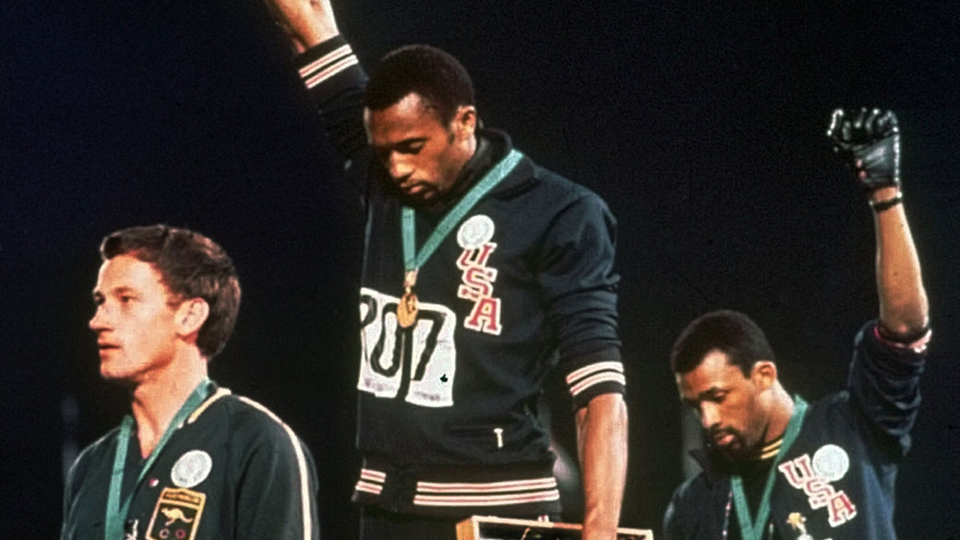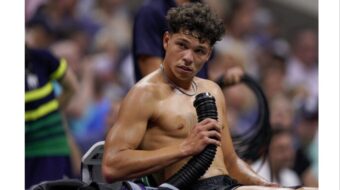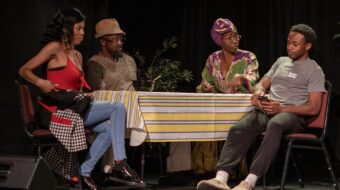
As the war drums’ roll off a rat-tat-tat of fear and uncertainty—ratcheted up by Donald Trump’s oddly staffed press conference Wednesday— ushering in a new decade for an already fiercely divided, and politically disjointed world, the importance of protest, its much needed moral fiber, and it’s existence as a global human right finds itself in the crosshairs of the powers that be.
At the 2020 Olympic Games, there will be no power fists raised at medal ceremonies, no knees shall be taken, and no calls for justice in unjust times will be heard from televisions worldwide.
The International Olympic Committee published specific guidelines early Thursday regarding which type of athlete protests will not be allowed at the Tokyo games.
“We needed clarity and they wanted clarity on the rules,” said Kirsty Coventry, an Olympic gold medalist in swimming, and chair of the IOC Athletes’ Commission, which oversees such rules. “The majority of athletes feel it is very important that we respect each other as athletes.”
Under the Olympic Charter’s rule 50, athletes are prohibited from taking a political stand in the field of play—think back to American sprinters Tommie Smith and John Carlos at the 1968 Mexico City Games, but can still express political opinions in official media settings (whether those statements make the headlines questionable) or on social media accounts.
Athletes who break protest rules at the July 24-Aug.9 games face three rounds of disciplinary action by the IOC, a specific sport’s governing body, and a national Olympic body.
The three-page guidelines come as a direct response following two American athletes who were disciplined by the U.S. Olympic Committee for medal podium protests at the Pan-American Games in August 2019, in Lima, Peru.
Hammer thrower Gwen Berry raised a fist in protest, and fencer Race Imboden took a knee. Both were put on 12-month probation—a period covering the Tokyo Olympics.
“It is a fundamental principle that sport is neutral and must be separate from political, religious or any other type of interference,” says the IOC document, urging “the focus for the field of play and related ceremonies must be on celebrating athletes’ performance.
“In conclusion, these guidelines have been developed with the aim that every one of you can enjoy the experience of the Olympic Games without any divisive disruption.”
As if the threat of further military intervention in the Middle East isn’t a more “divisive disruption.” Nuclear proliferation, the attacks on the poor and working-class, the environmental crisis… on it goes.
There are catastrophic disruptions taking place all over, and protest, to me, isn’t one of them.
Make no mistake, we’re still at war—they’ve never ended, and the continuing assault on the right to protest drives home the point.
We saw what happened when the NFL tried to force a national anthem policy on players—will the same happen at the Olympic Game level?
I wouldn’t doubt it.












Comments